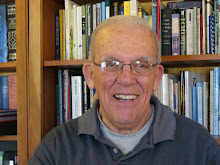Renewing the Earth
Although the Bishops acknowledge the scientific uncertainty and controversy surrounding concerns for accelerated rates of climate change, diminishing biodiversity, deforestation, and the implications of widespread dependencies on fossil fuels, they nonetheless identify environmental integrity as a moral imperative for today. Elsewhere, arguments for a right to development, particularly for the nations of the “third world,” have increasingly been tempered by concerns for long and short term environmental costs. Thus, Catholic social teaching increasingly promotes sustainable development, i.e., "meeting the needs of the present without compromising the ability of future generations to meet their own needs." (Brundtland Commission, 1987).
The Bishops acknowledge that Catholic social thought does not contain a fully developed ecological ethics. Still, the Judeo-Christian tradition (which they admit has sometimes been used to justify human exploitation of the earth) contains rich resources for the promotion of ecological responsibility. For example, the Hebrew Scriptures describe creation in terms which give rise to a demand for right-relation, not only between persons, but between the human and non-human in creation. The Bishops go on to identify seven core principles or themes in CST in service of ecological conversion:
a God-centered and sacramental view of the universe, which grounds human accountability for the fate of the earth;
a consistent respect for human life, which extends to respect for all creation;
a worldview affirming the ethical significance of global interdependence and the common good;
an ethics of solidarity promoting cooperation and a just structure of sharing in the world community;
an understanding of the universal purpose of created things, which requires equitable use of the earth's resources;
an option for the poor, which gives passion to the quest for an equitable and sustainable world;
a conception of authentic development, which offers a
Sunday, October 11, 2009
Subscribe to:
Post Comments (Atom)

No comments:
Post a Comment